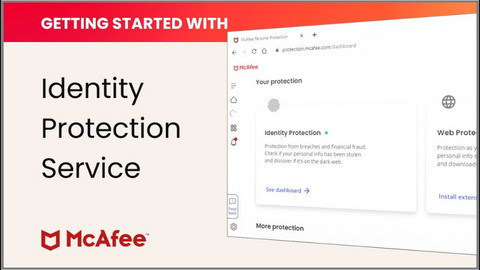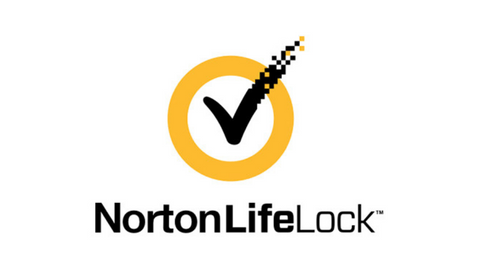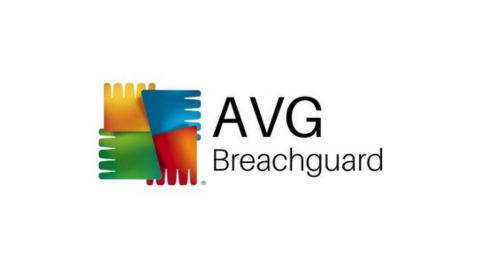This post will show you how to build a strong credit score.
In today’s financial landscape, your credit score is crucial in many aspects of your life. From securing loans and credit cards to renting an apartment or even landing a job, a good credit score can open doors and save you money.
On the flip side, a poor credit score can create significant obstacles and cost you dearly in the long run. This guide will walk you through the essentials of building and maintaining a strong credit score, empowering you to take control of your financial future.
Table of Contents
Understanding Credit Scores
Before diving into strategies for improving your credit score, it’s important to understand what a credit score is and how it’s calculated.
What is a credit score?
A credit score numerically represents your creditworthiness, typically ranging from 300 to 850. The higher your score, the more likely you will be approved for loans and credit cards with favourable terms.
How is a credit score calculated?
While there are several credit scoring models, the most widely used is the FICO score. FICO scores are calculated based on five main factors:
- Payment history (35%)
- Credit utilization (30%)
- Length of credit history (15%)
- Credit mix (10%)
- New credit inquiries (10%)
Understanding these factors is key to developing strategies for improving your credit score.
Top Identity Protection Deals To Build Strong Credit Scores
Steps to Build a Good Credit Score
1. Pay Your Bills on Time
Payment history is the single most important factor in determining your credit score. Consistently paying your bills on time demonstrates responsibility and reliability to lenders.
Tips for timely payments:
- Set up automatic payments for recurring bills and travel expenses
- Use calendar reminders for due dates
- Consider paying bills twice a month to avoid missing due dates
2. Keep Your Credit Utilization Low
Credit utilization refers to the amount of credit you use compared to your credit limits. Aim to keep your utilization below 30% across all your credit cards and lines of credit.
Strategies to lower credit utilization:
- Pay down existing balances
- Request credit limit increases
- Spread purchases across multiple cards
- Make multiple payments throughout the month
3. Maintain a Long Credit History
The length of your credit history contributes to your credit score. Keep your oldest accounts open, even if you don’t use them frequently.
Ways to build credit history:
- Become an authorized user on a family member’s long-standing account
- Open a secured credit card if you’re new to credit
- Keep old accounts open, making occasional small purchases to keep them active
4. Diversify Your Credit Mix
A mix of different types of credit (e.g., credit cards, personal loans, mortgage) can positively impact your score. However, don’t open new accounts for this purpose if you don’t need them.
Examples of different credit types:
- Revolving credit (credit cards)
- Installment loans (personal loans, auto loans)
- Mortgage loans
- Student loans
5. Limit New Credit Applications
Each time you apply for credit, a hard inquiry is recorded on your credit report. Too many inquiries in a short period can negatively impact your score.
Tips for managing credit inquiries:
- Only apply for credit when necessary
- Research and compare offers before applying
- Take advantage of pre-qualification tools that use soft inquiries
6. Monitor Your Credit Reports Regularly
Regularly checking your credit reports allows you to spot errors or fraudulent activity that could hurt your score.
How to monitor your credit:
- Request free annual credit reports from AnnualCreditReport.com
- Use credit monitoring services offered by credit card companies
- Use identity protection tools like Incogni, DeleteMe, or OmniWatch Identity to safeguard your personal information.
7. Address Negative Items on Your Credit Report
If you find errors or outdated information on your credit report, take steps to have them corrected or removed.
Steps to address negative items:
- Dispute errors with the credit bureaus
- Negotiate with creditors to remove negative items in exchange for payment
- Consider working with a reputable credit repair company for complex issues
8. Use Credit Responsibly
Responsible credit use is key to building and maintaining a good credit score. This means using credit when necessary but avoiding overreliance on borrowed money.
Responsible credit habits:
- Only charge what you can afford to pay off
- Pay more than the minimum payment whenever possible
- Avoid maxing out credit cards
- Use credit for planned purchases rather than impulsive spending
9. Consider a Secured Credit Card
If you’re new to credit or rebuilding after financial difficulties, a secured credit card can be an excellent tool for establishing a positive payment history.
Benefits of secured credit cards:
- Easier to qualify for than traditional credit cards
- Reports to major credit bureaus
- It helps build a credit history
- Can graduate to an unsecured card with responsible use
10. Become an Authorized User
Being added as an authorized user on someone else’s credit card account (preferably someone with a long history of responsible use) can help boost your credit score.
Tips for becoming an authorized user:
- Choose someone with a strong credit history
- Ensure the primary account holder makes timely payments
- Verify that the card issuer reports authorized user activity to credit bureaus
11. Keep Old Accounts Open
The length of your credit history impacts your score, so keeping old accounts open can be beneficial, even if you don’t use them frequently.
Strategies for maintaining old accounts:
- Make small, occasional purchases on old cards
- Set up recurring payments for small bills on older accounts
- Store old cards safely to prevent fraudulent use
12. Use Credit-Building Tools
Several tools and services are designed to help individuals build or improve their credit scores.
Credit-building tools to consider:
- Credit-builder loans
- Rent reporting services
- Experian Boost (reports utility and streaming service payments)
13. Manage Student Loans Responsibly
For many young adults, student loans are their first experience with credit. Managing these loans responsibly can help establish a positive credit history.
Tips for managing student loans:
- Make payments on time
- Consider income-driven repayment plans if struggling
- Look into loan forgiveness programs if eligible
14. Avoid Common Credit Mistakes
Awareness of common pitfalls can help you avoid actions that could negatively impact your credit score.
Mistakes to avoid:
- Closing credit cards with long histories
- Co-signing loans for unreliable borrowers
- Ignoring credit card statements
- Settling debts without understanding the credit implications
15. Seek Professional Help When Needed
Don’t hesitate to seek professional assistance if you’re struggling with debt or complex credit issues.
Resources for professional help:
- Credit counseling agencies
- Financial advisors
- Debt consolidation services
- Bankruptcy attorneys (as a last resort)
16. Protect Your Identity
Identity theft can wreak havoc on your credit score. Taking steps to protect your personal information is crucial for maintaining good credit.
Identity protection strategies:
- Use strong, unique passwords for all financial accounts
- Enable two-factor authentication when available
- Be cautious about sharing personal information online
- Consider using identity protection tools like Incogni, DeleteMe, or OmniWatch Identity
These tools offer various services to help safeguard your personal information:
Incogni: Helps remove your personal information from data broker databases, reducing the risk of identity theft and unwanted marketing.
DeleteMe: Specializes in removing personal information from public records and people-search websites.
OmniWatch: Offers comprehensive identity monitoring and protection services, including dark web monitoring and identity theft insurance.
While these tools can be valuable additions to your identity protection strategy, it’s important to research and choose the one that best fits your needs and budget.
17. Be Patient and Persistent
Building a good credit score takes time and consistent effort. Don’t get discouraged if you don’t see immediate results.
Long-term strategies:
- Set realistic credit score goals
- Celebrate small improvements
- Stay committed to responsible credit habits
- Regularly review and adjust your credit-building strategy
18. Educate Yourself Continuously
The world of credit and finance is always evolving. Staying informed about changes in credit scoring models, new financial products, and best practices can help you make better decisions.
Ways to stay informed:
- Follow reputable financial news sources
- Attend financial literacy workshops
- Read books on personal finance and credit
- Join online communities focused on credit-building
19. Plan for the Future
As you build your strong credit score, it’s important to consider how a good credit score fits into your broader financial goals.
Future considerations:
- Saving for major purchases (e.g., home, car)
- Building an emergency fund
- Planning for retirement
- Investing for long-term growth
Conclusion
Building a strong credit score is a journey that requires patience, discipline, and knowledge. By understanding how credit scores work and implementing the strategies outlined in this guide, you can take control of your financial future.
Remember that good credit is just one aspect of overall financial health. Combine these credit-building strategies with sound budgeting, saving, and investing habits to create a solid foundation for long-term financial success.
Whether you’re just starting to build credit or working to improve an existing score, the key is to stay committed to responsible financial habits. With time and consistent effort, you can achieve and maintain a credit score that opens doors to better financial opportunities and peace of mind.
As you embark on your credit-building journey, don’t forget to protect your hard-earned progress by safeguarding your personal information. Tools like Incogni, DeleteMe, and OmniWatch Identity can provide an extra layer of protection against identity theft and fraud, helping to ensure that your credit score accurately reflects your financial responsibility.
Remember, your credit score reflects your financial habits and responsibility. By making informed decisions and staying committed to your goals, you can build a strong credit score that will serve you well throughout your financial life.
INTERESTING POSTS
- 5 Reasons Why You Should Study For A Cybersecurity Degree In 2024
- Top 4 Benefits Of Easy Loans
- 7 Things You Need To Know About Cybersecurity And Payday Loans (Infographics)
- 7 Business Credit Card Tips For Small Businesses
- 12 Worst Data Breaches In History
- $255 Payday Loans Online – What Is The Easiest Option To Get?
About the Author:
Daniel Segun is the Founder and CEO of SecureBlitz Cybersecurity Media, with a background in Computer Science and Digital Marketing. When not writing, he's probably busy designing graphics or developing websites.















